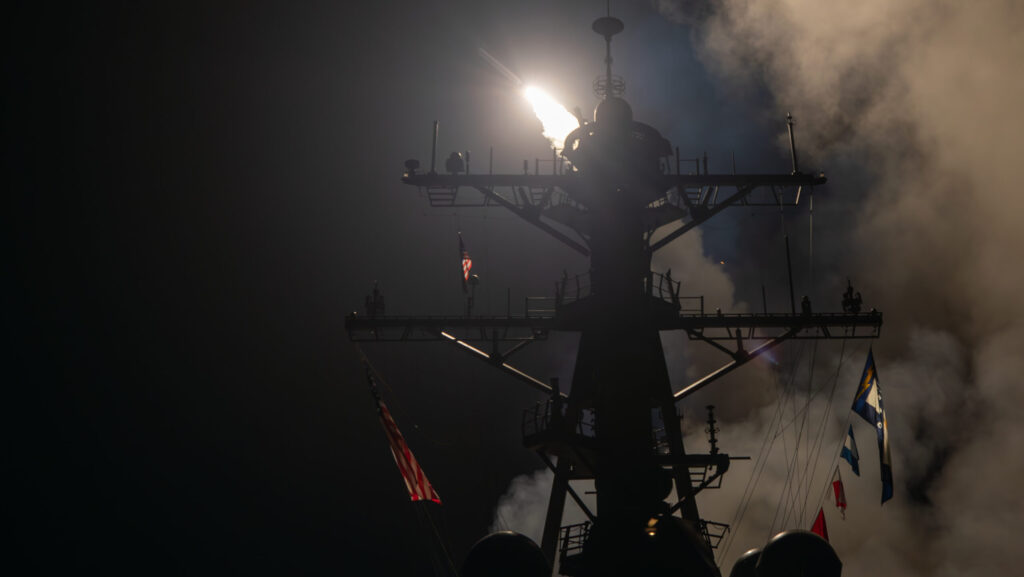The guided-missile destroyer Gravely (DDG 107) launches tomahawk land attack missiles in response to an attack by rebel Houthi forces in the Red Sea. (U.S. Navy photo by Mass Communication Specialist 1st Class Jonathan Word)
WASHINGTON — The American intelligence agency focused on assessing foreign military forces today published unclassified imagery that it says directly links verified Iranian armaments with those recently used by rebel Houthi forces.
The new Defense Intelligence Agency report [PDF] relies on images of Iranian weapons confiscated during interdictions conducted by the US Navy, Coast Guard as well as partnered and allied navies between 2015 and 2024 and compares them to weapons seized as they were in transit to Yemen and to the remains of munitions used in specific, recent attacks.
“As of 30 April 2024, the Houthis have used Iran-supplied ballistic and cruise missiles to conduct at least 100 attacks against land-based targets in Israel, Saudi Arabia, the United Arab Emirates, and Yemen and at least 56 attacks targeting ships in the Red Sea and Gulf of Aden,” according to the report. “Between 2015 and 2024, the United States and its partners have interdicted at least 20 Iranian smuggling vessels, seizing ballistic, cruise, [surface-to-air] missile components, [anti-tank guided missiles], [unmanned aerial vehicles], and thousands of assault rifles, rocket components, and other illicit weapons destined for the Houthis.”
RELATED: Defense Intelligence Agency Leader Confirmed After Tuberville Dam Break
While the reported link between Iran and Houthi forces is not surprising — various senior US officials have publicly made that assertion in the months following the Oct. 7 attack on Israel, including in previous DIA reports — the public “naming and shaming” is a continuation of the Biden administration’s push to publicize intelligence analysis about America’s adversaries.
The report specifically identifies Iran’s Noor family of antiship cruise missiles, the Qiam ballistic missile, the 358 Surface-to-Air Missile and the Dehlavieh Antitank guided missile. On one slide, a series of images shows Iran’s Noor missile, broken down cruise missiles on an interdicted ship en route from Iran as well as remnants of a missile recovered following the December 2023 attack on the Norwegian-flagged M/T Strinda.
“The interdicted materiel shares key identifiable features with Iranian antiship cruise missiles, including the stabilizer fin (1), rocket booster (2), air-intake cabin (3), and nose cone (4),” according to the report. “The Iranian Tolu-4 turbojet engine, used in the Noor ASCM, has unique features—including the compressor stage (5) and stator (6) — that are consistent with engine debris recovered from the 11 December 2023 Houthi attack on the M/T Strinda.”
DIA in a different report published in June estimated that 65 countries have been impacted by Houthi attacks in the Red Sea — perhaps ironically, Iran included. Intel community reports aside, Breaking Defense previously reported Tehran appears to have become less and less interested in denying its involvement in arming the Houthis.





















Discussion about this post